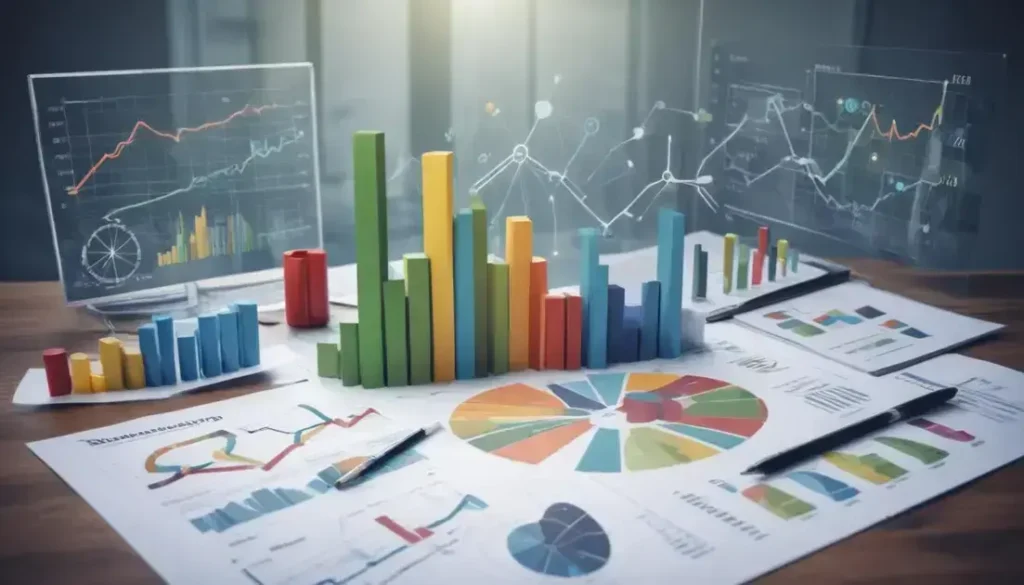Adopting advanced procurement practices, including AI and sustainable sourcing, enhances efficiency, reduces costs, and fosters collaboration, enabling UK businesses to remain competitive and meet modern consumer demands.
In today’s landscape, sustainability is no longer an option but a necessity. Have you considered how AI can enhance procurement practices?
Introduction to Procurement AI
The rise of Procurement AI is reshaping traditional supply chain approaches, enabling companies to enhance efficiency and sustainability. This technology leverages data-driven insights to streamline procurement processes, making them faster and more transparent. With AI, businesses can automate routine tasks, allowing procurement professionals to focus on strategic decision-making and relationship management.
Transformation through Automation: Automation in procurement not only reduces manual workload but also leads to significant cost savings. AI algorithms analyse vast amounts of data to identify trends, forecast demand, and optimize supplier selection. By implementing machine learning, organisations can adapt their procurement strategies in real-time, effectively responding to market dynamics.
Another vital aspect is the integration of sustainability within AI-driven procurement. Companies are increasingly prioritising environmentally friendly suppliers and materials. AI tools enable them to evaluate supplier performance based on sustainability metrics, ensuring compliance with corporate responsibility goals.
Furthermore, the collaboration between AI technologies and procurement teams fosters an innovative culture. Professionals equipped with AI tools can make data-backed decisions faster, driving competitive advantage in the marketplace. As AI continues to evolve, its role in procurement will expand, offering even more opportunities for strategic growth.
Role of AI in sustainability
The role of AI in sustainability is becoming increasingly pivotal as companies seek to reduce their environmental footprint. By harnessing data analytics, AI enables organisations to optimise resource usage, thus driving efficiencies in energy consumption and waste management.
Data-Driven Insights: With advanced algorithms, AI can analyse patterns and predict needs, ensuring that resources are allocated efficiently. This capability not only mitigates waste but also supports businesses in achieving their sustainability targets.
Moreover, AI facilitates the integration of sustainable practices in supply chains. It aids in selecting environmentally friendly suppliers and materials, allowing companies to align their procurement strategies with their sustainability goals. By evaluating suppliers based on sustainability metrics, firms enhance compliance and foster responsible sourcing.
Additionally, AI tools can model various scenarios, helping organisations understand the potential impact of their decisions on the environment. This predictive capability is essential for developing robust sustainability strategies tailored to specific needs.
Furthermore, AI promotes transparency in sustainability efforts, helping businesses communicate their initiatives to stakeholders effectively. Companies that leverage AI in this way can demonstrate their commitment to sustainability and strengthen their brand identity in a competitive market.
Shifting procurement paradigms
Shifting procurement paradigms are redefining how organisations approach their supply chain strategies. As technology evolves, businesses are increasingly adopting innovative methods that enhance efficiency and sustainability. This transformation is heavily influenced by the rise of Procurement AI, which allows for data-driven decision-making.
Organisations are moving away from traditional models that rely solely on historical data. Instead, they are embracing real-time analytics to assess supplier performance and market conditions. This shift facilitates the identification of potential risks and opportunities, ensuring organisations remain agile in a dynamic market.
The integration of collaborative platforms enables seamless communication between stakeholders. These platforms foster transparency, accountability, and egalitarian relationships among suppliers and procurement teams. By leveraging technology, companies can engage with diverse suppliers, including those focusing on sustainability, which aligns with modern corporate values.
Another significant shift is the increased emphasis on sustainable procurement. Businesses are prioritising eco-friendly materials and ethical sourcing practices that comply with global sustainability standards. This focus reflects a broader commitment to Corporate Social Responsibility (CSR) and is essential for maintaining a competitive edge in today’s market.
Overall, the shift in procurement paradigms highlights the importance of adaptability. Companies that embrace these changes will not only enhance their operational efficiency but also contribute positively to the global sustainability agenda.
Challenges faced by firms
Firms today face numerous challenges in adopting innovative procurement practices. One of the primary obstacles is the resistance to change within organisational structures. Employees accustomed to traditional methods may struggle to embrace new technologies like Procurement AI and automated systems.
The complexity of integrating these technologies presents another significant hurdle. Companies often encounter difficulties in aligning their existing processes with new AI solutions. This can lead to operational disruptions if not managed effectively.
Data security is also a pressing concern. With the increasing reliance on digital platforms, firms must safeguard sensitive information from potential breaches. Ensuring data privacy while leveraging AI’s analytical capabilities requires a delicate balance.
Moreover, the fast-paced evolution of technology can make it challenging for firms to keep up. Staying abreast of the latest advancements in AI and procurement strategies demands continuous learning and adaptation. Companies that fail to invest in ongoing training risk falling behind their competitors.
Sustainability pressures further complicate this landscape. Businesses are increasingly expected to meet stringent environmental standards. Achieving sustainability goals while maintaining profitability requires innovative thinking and robust strategies.
Benefits of AI integration
The integration of AI into procurement processes brings numerous benefits that enhance operational efficiency. Primarily, AI enhances data analysis capabilities, allowing companies to process large volumes of information rapidly. This speed leads to more informed decision-making, enabling organisations to stay competitive in a rapidly evolving market.
Cost reduction is another significant advantage. By automating routine tasks, companies can reduce labour costs and minimise human error. This efficiency not only saves time but also reallocates resources towards higher-value activities that can drive growth.
Moreover, AI helps improve supplier relationships. Advanced analytics can provide insights into supplier performance, ensuring companies collaborate with the most reliable partners. This data-driven approach fosters transparency and accountability within the supply chain.
AI also contributes to the overall sustainability of procurement practices. By optimising resource use and enabling more efficient logistics, companies can reduce their carbon footprint. This aligns with growing consumer demand for environmentally conscious practices.
Furthermore, AI facilitates enhanced forecasting capabilities. Organisations can predict demand fluctuations based on historical data and trends. This accuracy ensures that inventory levels are optimised, reducing waste and improving cash flow management.
Case study: Northwestern Mutual
The case study of Northwestern Mutual exemplifies how AI integration can significantly enhance procurement operations. This financial services company recognised the need to improve efficiency and sustainability across its supply chain. By implementing AI-driven solutions, Northwestern Mutual transformed its procurement processes while aligning with its commitment to innovation and customer service.
One significant improvement was in data analytics. Northwestern Mutual used AI tools to analyse procurement data, identifying patterns that human analysts might overlook. This provided valuable insights into supplier performance and contract compliance, allowing the company to make informed decisions that optimise costs and enhance service delivery.
Furthermore, the company focused on fostering sustainable sourcing. By leveraging AI, Northwestern Mutual can evaluate suppliers based on their sustainability practices. This ensures that the materials and services procured align with the organisation’s commitment to corporate social responsibility.
Northwestern Mutual also enhanced its supplier collaboration through AI. The technology facilitated real-time communication and transparency, fostering stronger relationships with suppliers. This collaborative approach not only builds trust but also drives innovation in product offerings.
Ultimately, Northwestern Mutual’s case study illustrates that the adoption of AI in procurement is not merely a trend but a strategic move that delivers tangible benefits, setting a standard for others to follow.
Collaboration in procurement
Collaboration in procurement is essential for enhancing operational efficiency and driving innovation within organizations. By fostering strong partnerships with suppliers, businesses can create networks that promote transparency and trust. This collaborative approach facilitates open communication, allowing companies to share vital information about market trends, product availability, and pricing strategies.
One of the key benefits of enhanced collaboration is the ability to align objectives with suppliers. When both parties work towards common goals, it results in a streamlined procurement process. This alignment can significantly reduce lead times and improve service levels, contributing to higher customer satisfaction.
Moreover, advancements in technology have revolutionised how collaboration occurs. Cloud-based platforms and digital communication tools enable real-time information sharing, making it easier for procurement teams to engage with multiple suppliers simultaneously. This immediacy in communication allows for quick problem-solving and adaptability in response to market changes.
Incorporating sustainability into collaborative procurement practices is increasingly important as well. Companies and suppliers can work together to pursue eco-friendly initiatives, which not only meet regulatory requirements but also cater to the growing consumer demand for responsible business practices.
Ultimately, leveraging collaboration in procurement not only optimises costs but also fosters innovation, driving companies to stay competitive in today’s fast-paced market.
Future trends in procurement strategies
The landscape of procurement is rapidly evolving, with several future trends poised to shape strategies in the coming years. One significant trend is the increasing reliance on artificial intelligence (AI) to enhance decision-making processes. AI systems are being developed to analyse vast datasets, enabling procurement teams to make informed choices quickly.
Another key trend is the push towards more sustainable procurement practices. Companies are recognising the importance of ethical sourcing and are looking to supply chains that minimise environmental impact. This focus on sustainability aligns with consumer demands for responsible business practices.
The use of blockchain technology is also gaining traction. By providing transparency and traceability in the supply chain, blockchain enhances trust between businesses and suppliers. This technology allows companies to verify the authenticity of products and track their journey from source to consumer.
Additionally, the rise of collaborative procurement platforms facilitates greater interaction between buyers and suppliers. These platforms allow for shared resources, collective purchasing power, and improved communication, leading to more effective partnerships.
Finally, as remote work becomes more prevalent, digitalisation of procurement operations is expected to advance further. e-Procurement systems streamline processes and improve efficiency, making procurement more agile and responsive to market changes.
Skills for procurement professionals
The evolving landscape of procurement demands a new set of skills for procurement professionals. As technology advances, professionals must not only understand traditional procurement practices but also adapt to emerging trends. A strong foundation in data analytics is essential, enabling professionals to interpret complex datasets and make informed decisions.
Furthermore, proficiency in negotiation and relationship management remains crucial. Building strong partnerships with suppliers can lead to better pricing, improved quality, and enhanced service levels. Skilled negotiators can navigate challenges and achieve mutually beneficial outcomes.
Additionally, knowledge of sustainable practices is increasingly important. As organisations move towards environmentally responsible procurement, professionals need to understand sustainability metrics and integrate them into their sourcing strategies. This knowledge will help businesses align with consumer demand for ethical practices.
Moreover, familiarity with digital tools and e-procurement systems is vital. Being adept in these technologies streamlines processes and improves efficiency. Professionals must embrace digital transformation to stay competitive in a fast-paced market.
Lastly, strong communication skills are essential for collaboration across departments and with stakeholders. Effective communication ensures that procurement strategies align with overall business goals, fostering cross-functional teamwork for success.
Impacts on UK businesses
The impacts of evolving procurement practices on UK businesses are profound and far-reaching. As organisations adopt advanced technologies like artificial intelligence and data analytics, they experience enhanced efficiency and cost savings. These tools enable companies to streamline their procurement processes, helping them respond swiftly to market changes.
Moreover, embracing sustainable procurement practices has become vital for UK businesses. Companies that prioritise environmentally friendly sourcing not only comply with regulatory requirements but also meet growing consumer demand for ethical practices. This shift can significantly enhance brand reputation and customer loyalty.
Additionally, increased collaboration with suppliers plays a crucial role in procurement strategies. UK businesses that foster strong partnerships can achieve better pricing, improved quality, and increased innovation. Such collaboration allows businesses to adapt their offerings rapidly, ensuring they remain competitive in a fast-paced market.
Furthermore, the evolution of procurement is driving changes in workforce skills. Procurement professionals in the UK are now expected to possess advanced data analysis skills and a strong understanding of digital tools. This shift not only enhances individual career prospects but also contributes to a more skilled workforce overall.
In summary, the impacts on UK businesses are evident in their operational improvements, competitive positioning, and commitment to sustainable practices. Embracing these changes is essential for long-term success.
Conclusion and call to action
As businesses navigate the changing landscape of procurement practices, it’s essential to embrace technological advancements and sustainable strategies. The integration of AI and data analytics into procurement processes enables organisations to enhance efficiency, cut costs, and improve decision-making. Companies that adapt to these changes position themselves ahead of the competition.
Moreover, fostering collaborative relationships with suppliers is crucial. Engaging in transparent communication can lead to mutually beneficial partnerships that drive innovation and resilience in the supply chain. Companies must prioritise ethics and sustainability to meet the growing demands of environmentally conscious consumers.
Procurement professionals are now required to develop new skills to thrive in this evolving environment. Building expertise in digital tools and sustainable practices can result in significant career advancement and contribute to a more skilled workforce.
To fully capitalise on these opportunities, businesses should consider investing in ongoing training and development, as well as pilot projects to evaluate new technologies. Encouraging a culture of innovation and adaptability can help organisations respond effectively to market shifts.
In conclusion, the future of procurement is bright for those who embrace change and seek to innovate. It’s time for businesses to take action and lead the way in transforming procurement practices for a sustainable future.
In Summary: The Future of Procurement
The evolution of procurement practices offers exciting opportunities for businesses willing to adapt. By embracing technology like AI and data analytics, companies can streamline processes and save costs.
Building strong partnerships with suppliers and focusing on sustainability are essential strategies for success. This approach not only enhances efficiency but also aligns with the values of modern consumers.
Moreover, investing in the development of skills for procurement professionals ensures that teams are prepared for the challenges ahead. Continuous learning and adaptation are key to thriving in a competitive landscape.
Ultimately, the future of procurement is bright for those who take action. Embrace innovation, prioritise collaboration, and commit to sustainable practices to lead your organisation toward long-term success.
Frequently Asked Questions
What are the key benefits of adopting AI in procurement?
Adopting AI in procurement can enhance efficiency, reduce costs, and improve decision-making by analysing large datasets swiftly.
How can sustainable practices impact my business procurement?
Sustainable practices in procurement can improve brand loyalty and reputation, aligning your business with the growing demand for environmentally responsible solutions.
What skills should procurement professionals develop for the future?
Procurement professionals should focus on data analytics, negotiation, sustainable practices, digital tools, and strong communication skills.
How can collaboration with suppliers enhance procurement strategies?
Collaborating with suppliers fosters transparency, builds trust, and leads to better pricing and innovative solutions that benefit both parties.
What role does technology play in improving procurement processes?
Technology streamlines procurement processes, improves data accuracy, and enhances communication, making it easier for businesses to respond to market changes.
Why is continuous learning important for procurement teams?
Continuous learning helps procurement teams stay updated on industry trends and technologies, ensuring they remain competitive in a rapidly evolving landscape.


